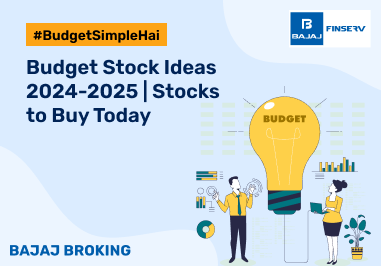Within fiscal policy, the government has two main levers to impact an economy – taxes and spending. Let’s talk about taxes first. Consider the upcoming Union Budget 2024. Many salaried individuals are expecting the government to reduce their tax burden.
You may ask, why are individuals having such expectations? There could be many reasons. For example, inflation tends to be high in India, which reduces the value of money every year. Besides, the Indian economy is going through some sort of a slowdown, especially in rural areas.
If the government reduces taxes, it will provide more money to people, which they can either spend or save. This lever is called “taxation.” The other lever is “spending.” You may wonder what the government spends on.
The government spends on those things, which typically are not provided by the private sector. For example, hospitals, roads, and defence. At times, private players participate in these areas, but the government remains the dominant player.
Let’s say that the government decides to build a road. There are many ways an economy can benefit from it. The government may work on this project with a private company. In that case, that company, its shareholders, employees, etc. will gain.
That company may hire labour on a contract basis, which means people working on daily wage will gain. This shows the trickle-down impact of government spending. When the government wants to give a stimulus to an economy, it can increase its spending.
However, if it wants to check the growth, it can reduce its spending. Similarly, it can tweak the tax rates to either give a boost to an economy or check the rate of its growth.
The need for Fiscal Policy
From our discussion so far, you may be thinking whether the fiscal policy only involves changing government spending and taxation. The fact is the government tries to address several societal and developmental issues through these two levers. So, it’s extremely important for a country to have a prudent fiscal policy.
For example, in recent times, the Indian government has focused on improving the country’s infrastructure. As a result, successive budgets have increased allocations to sectors like transportation, urban development, energy, aviation, etc.
You might have read about the government planning to build bridges or improve power supply. All such expenditures come under infrastructure. This explains how fiscal policy is important for a country’s infrastructure.
Then, you must have read about the government introducing the goods-and-services-tax (GST) in 2017. The main purpose of GST implementation was to unify and simplify the country’s indirect tax system.
Also Read: GST Collection Recorded at ₹1.74 Lakh Crore in June 2024
Therefore, fiscal policy is not only about reducing or increasing taxes, but it is also about rationalising the tax structure of India for the benefit of its people and businesses.
The government also offers tax incentives to industries to promote industrialisation and generate employment for people. For example, over the years, the state government of Karnataka has offered tax rebates to IT companies, which is one of the major reasons it has become an IT hub.
That said, you should also keep in mind that fiscal policy does not work in isolation. In reality, fiscal policy and monetary policy work together to shape an economy.
Historical Significance
Fiscal policy has been used for centuries, with governments managing economies through taxes and spending. In medieval times, tariffs protected local industries.
John Maynard Keynes significantly influenced modern fiscal policy during the 1930s Great Depression, advocating for increased government spending to boost demand and reduce unemployment. Post-World War II, countries increased spending to rebuild their economies.
In India, post-independence, a conservative fiscal policy aimed to keep the fiscal deficit low and funded public sector-led industrialization through taxes, but growth remained slow. Reforms in the 1980s led to a higher fiscal deficit and public debt, resulting in the 1991 balance of payments crisis and subsequent economic liberalisation. Since then, India has aligned its policies with global realities.
Successive Indian governments have used fiscal and monetary policies to drive economic growth and meet public expectations.
Contemporary Challenges and Considerations
The Indian government faces many challenges when it comes to its fiscal policy. Most developing countries, including India, have to spend a lot on improving their infrastructure and social welfare.
If the government increases its spending on these things, it can increase its deficit and public debt. However, there’s a way to deal with it. If the government increases its tax revenue, it can increase its spending without increasing fiscal deficit and public debt.
That said, increasing tax revenue for any government is easier said than done. If the government increases taxes, it may discourage people and businesses from spending more. So, ideally, the government should increase tax compliance, which means that it should ensure that more people pay taxes.
In India, currently, a tiny minority pays their income tax. The government should find ways to plug such loopholes to increase its tax revenue. With more revenue, the government will be able to spend on infrastructure and social welfare.
Some experts have opined that India’s public debt is already high, which limits the government’s ability to spend on social welfare. They even expect the government to go for fiscal consolidation, which means the government is unlikely to increase fiscal deficit. Therefore, it may be difficult for the government to increase spending on social welfare.
In Conclusion
If you are an investor with a demat account, you should track the announcements related to fiscal policy on the budget day. In fact, you should track all the developments related to fiscal policy and monetary policy. The government’s focus is likely to be infrastructure in this budget. If you have investments in equities, you should watch out for how infrastructure stocks react to announcements.
In case the finance minister announces tax-relief measures, consumption-led sectors like FMCG may see a surge in their stock prices.
Keep an eye on Bajaj Broking’s website on the budget day because we’ll provide you with a lot of insights that will help you understand in simple terms how the budget will impact your investments. After all, Bajaj Broking ke saath #BudgetSimpleHai.
Disclaimer: Investments in the securities market are subject to market risk, read all related documents carefully before investing. This content is for educational purposes only. Securities quoted are exemplary and not recommendatory.
For All Disclaimers Click Here: https://bit.ly/3Tcsfuc

























